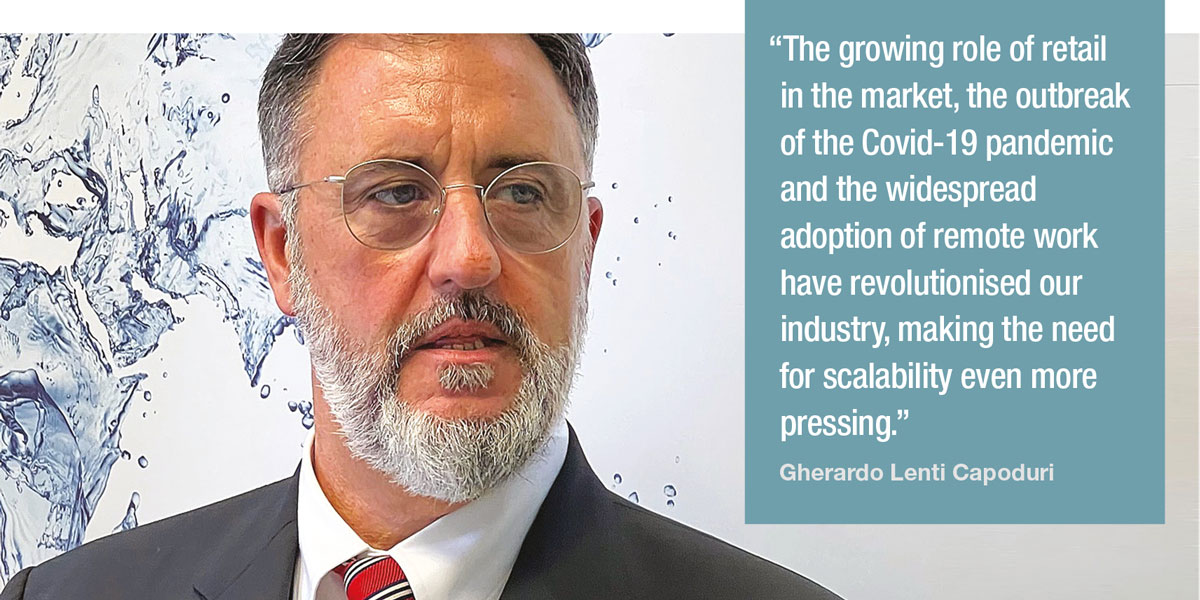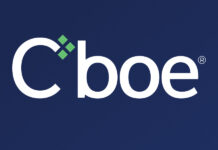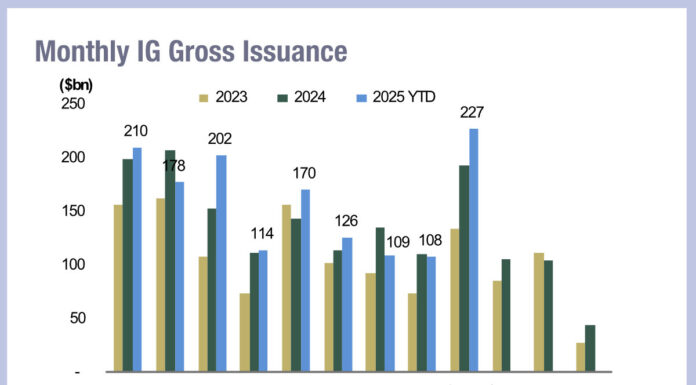The DESK asked Gherardo Lenti Capoduri, head of Market Hub, the multi-asset agency brokerage execution platform of Intesa Sanpaolo, about the state of the fixed income market in Europe and the challenges they have faced.
Which service offerings are clients asking you to prioritise this year? (multi-asset/high-touch & low-touch/retail order flow).
Our agency brokerage execution proposal is an ecosystem of multi-asset execution services, mainly dedicated to retail size order flow, where the client is considered a ‘partner’ more than a ‘customer’. Within this collaborative relationship, we can identify the following main client priorities:
- A ‘full-service’ offering to cover not only the execution value chain from order to settlement and custody, but also the outsourcing of ‘best execution’, reporting requirements and other ancillary services;
- Increased transparency requirements on retail-size execution, due to a combination of the increased average size of retail orders and the growing impact of Tier 2-3 institutional flow migration to low touch order execution platforms, managed by specialists such as Market Hub.
Overall, I should say that client demand for ‘lower complexity’ is ever increasing and can encompass a wider range of agency broker services than brokerage execution & custody only, including:
- Reducing the number of vendors, suppliers and connectivity protocols;
- Outsourcing of Smart Order Router technology for best execution and the costs of maintaining direct access to execution venues;
- Removing non-displayed market data costs;
- Simplifying contract negotiations;
- Streamlining due diligence processes of brokers, custodians and vendors;
- Reducing access complexity to reports, information and data;
- Growing opportunity of longer-term planning;
- Pursuing a fully compliant approach with regulatory obligations;
- Reducing overall investment costs in retail size execution process and technology development.
How does this change your front office in terms of skills, technology and services?
Regarding the new skills required in this sector, in recent years, we have witnessed a significant increase in complexity in the world of trading and investing. The mere execution of financial transactions is no longer sufficient to gain a competitive edge. Therefore, it is essential to integrate hybrid skills that combine financial and technological knowledge. The presence of scientists on the trading floor may enable us to address complex situations more effectively, and to offer innovative solutions to our clients. It is crucial to remain constantly updated to face challenges in a continuously evolving market. E-commerce sales team need to evolve to a multi-asset platform, professional sales team with wider competencies than a simple executing brokerage desk.
Analysing new opportunities and technologies allows us to quickly identify significant changes, assess their impact on our clients and adapt our strategies accordingly. Only through a strong collaboration with customers and constant monitoring of market trends, can we provide our clients with innovative solutions and we can remain at the forefront of the industry. An effective way to meet this goal is through the organisation of regular webinars or informational sessions. These events allow our clients to stay updated on new developments, delve into their topics of interest and interact with us. We are committed to offering a quality service that goes beyond mere execution, providing our clients with the tools and the culture needed to make informed decisions and seize market opportunities.
How is market structure and regulation affecting those demands and your offerings?
The 2020 Covid pandemic has reinforced the trend towards electronic platforms for order execution, with an increasing proportion of trades now executed electronically, and a decline in voice trading. As a result, there is a continuous trend towards a reduction of average order sizes, driven by the increased opportunity of handling these orders on electronic platforms through algos and low touch execution. In parallel, the recent rise in interest rates has boosted retail demand, which can now be served efficiently by routing orders to platforms and by a wide range of auto-execution solutions. In this challenging market transformation, broker-agency desks that are able to provide best execution electronically have seen their business grow. This is partly due to the unusual remote working conditions that have increased the need to outsourcing flows to ensure best execution.
Moving to the regulatory changes, the industry is facing relevant costs to comply with this new landscape. In the last few years MiFID Review, EMIR Review, Retail Market Strategy, Digital assets regulatory framework, trading platform perimeter definition and CSDR are all reshaping the financial markets landscape to provide more transparency, reduce differences in the not entirely level playing field within European financial markets, and to create the opportunity for new investors to access European market. The project for a European Consolidated Tape Provider may represent a real game changer.
Market Hub started in 2008, since when market structure and regulatory changes as well as technological innovation have been key drivers for our platform evolution and we transformed pure regulatory constraints into a business opportunity.
Where is the need for scale having the greatest impact on your business and what you are doing operationally to deliver it?
The growing role of retail in the market, the outbreak of the Covid-19 pandemic and the widespread adoption of remote work have revolutionised our industry, making the need for scalability even more pressing.
Investments in technology, system resilience, process automation, cybersecurity, surveillance, algo-trading, and data mining have increased their weight in capital budget calculation. The increased technological costs represent one of the key challenges for our industry, but also a great opportunity when you are at the forefront of this evolving landscape, which cannot be undervalued. Our brokerage Industry is adapting its business model to this new scenario, trying to leverage the rapid increase of technological costs, through a more scalable approach, and the outsourcing of less value-added components of the entire value chain.
In terms of market structure, we observed several company incorporations both in a vertical or in a horizontal direction, with the scope to create more efficiency in the operational process, to increase the business scale and to meet the goal of creating a single point of access for the client, with higher quality of service.
Partnership with fintech and vendors, deep collaboration with clients, participation with association working groups and capital markets events helps to quickly adapt our business model, making quicker and safer decisions on market trends as well as reacting to client needs with more flexibility, reducing the risk of losing competitive advantage and establishing a leading market position and leadership.
How will you take advantage of the technological innovation that will soon spread through the financial sector?
As a brokerage firm, we are focused on remaining competitive by taking advantage of the best technological innovations. For example, we consider cybersecurity to be a key issue in ensuring the soundness of the financial sector, and we are working to further strengthen our safeguards, which already include business continuity and disaster recovery systems. Wherever possible, we have adopted a hybrid, cloud approach to enhance our digital infrastructure and manage large volumes of data, and we are employing data science specialists to develop machine learning algorithms that facilitate efficient data analysis, allowing our brokers and traders to focus on exactly where our clients need them most. With all these efforts and improvements, we have the ambition to be a robust, agile and competitive player in the digital marketplace, establishing a leading position through innovation and readiness to ride future market changes.
©Markets Media Europe 2023
©Markets Media Europe 2025














